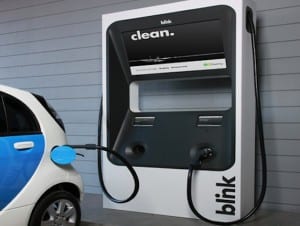The emergence of electric vehicles is opening up a whole new world for field service techs who will maintain those cars, the roads they run on and the power supplies needed to keep them running. With the shift from gas-powered cars to electric comes the need for an entirely new infrastructure, charging stations for this eco-friendly fleet and massive capacity upgrades to the electrical grid to accommodate the growing consumption of energy.
 Electric car makers already had one shot that didn’t go over so well, a point noted on the Mike Rowe Works “The Office” blog. “Years later, the electric car has risen from the ashes and is now poised to be making a comeback in a big way.” But for electric vehicles to achieve success, motorists will need sufficient “fueling” stations in the form of “plug and go” charging terminals. San Francisco-based ECOtality and ABB have partnered to do just this, reports SustainablePlant.
Electric car makers already had one shot that didn’t go over so well, a point noted on the Mike Rowe Works “The Office” blog. “Years later, the electric car has risen from the ashes and is now poised to be making a comeback in a big way.” But for electric vehicles to achieve success, motorists will need sufficient “fueling” stations in the form of “plug and go” charging terminals. San Francisco-based ECOtality and ABB have partnered to do just this, reports SustainablePlant.
With millions of electric vehicles expected to hit the roads in the coming years, these companies have a daunting task before them: creating and building the systems needed to charge these cars . And according to SustanablePlant’s interview with ECOtality President and CEO Jonathan Read, electric vehicles are here to stay this time around. Here are a few reasons why:
- Improved tech: better lithium-based batteries
- Gas isn’t getting any cheaper: at $4 per gallon, gas-powered cars are breaking the bank for many motorists
- Eco-awareness: increased attention to the harms associated with fossil fuels and the political implications of relying on oil
- Industry-wide compliance: all major electric vehicle companies agreed to use standard plugs for charging stations
With a possible electric vehicle revolution on the horizon, new challenges will confront the field service industry. Homes will need major power capacity upgrades to handle charging these cars and utilities and municipalities will need to be “plug-in ready.” ECOtality’s “Blink” charging stations will provide interactive units that communicate data to both motorists and the local utility. If a lot of moving parts come together to make this transition work, it could create an entirely new subset of skills and jobs to be filled by the field service set.


See the agenda & find out more about the show.